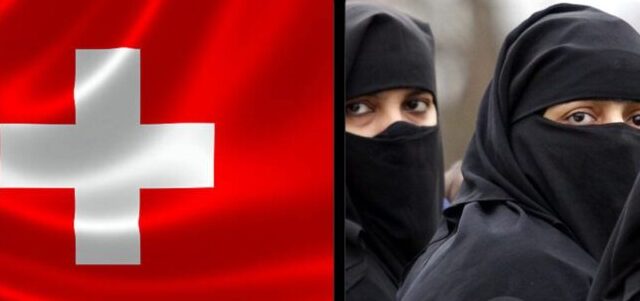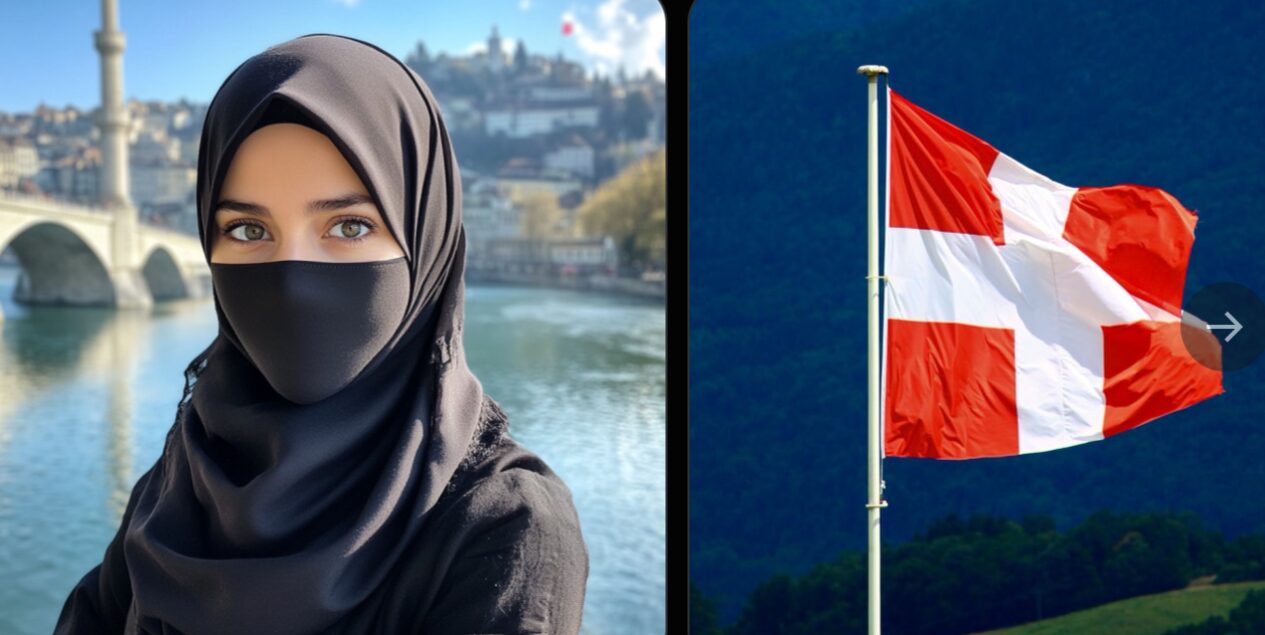Switzerland has officially banned wearing face coverings, including burqas, in public
Switzerland Officially Bans Face Coverings, Including Burqas, in Public
In a landmark decision, Switzerland has officially passed legislation banning the wearing of face coverings in public spaces, including burqas and other full-face coverings. This move has ignited intense debates around the world about individual rights, religious freedoms, and the role of government in shaping cultural norms. While the ban is hailed by some as a necessary step for security and integration, others view it as an infringement on personal freedom and religious expression. In this post, we examine the details of the ban, the arguments for and against it, and the broader implications for Swiss society and beyond.
The Context: A Growing Trend in Europe
Switzerland’s decision to implement the ban is part of a broader trend in Europe, where several countries have already adopted similar measures. France, Belgium, the Netherlands, and Austria, among others, have passed laws restricting the wearing of full-face coverings in public spaces. These laws have often been framed as part of efforts to promote social integration, ensure security, and uphold secular values in predominantly Christian nations.
Switzerland’s referendum on the ban was held in October 2021, and the proposal was approved by a significant margin, with 51.2% of voters supporting the measure. The ban officially came into effect in January 2025, making it one of the latest European countries to impose restrictions on face coverings. The decision has sparked intense discussions about the balance between freedom of expression and the need for societal cohesion.
What Does the Ban Entail?
Under the new law, wearing full-face coverings in public spaces such as streets, public transport, and government buildings is prohibited. The law specifically targets face coverings like burqas, niqabs, and other garments that obscure the face. However, it is important to note that the ban does not apply to masks worn for medical reasons, such as during the COVID-19 pandemic, nor does it affect face coverings worn for cultural or recreational reasons, such as during carnivals or festivals.
Those who are found in violation of the law face fines, and in some cases, the authorities may take further action, including requiring individuals to remove their face coverings in public. The goal of the ban is to ensure that people can engage with one another in public spaces in a way that is consistent with Switzerland’s social norms, which emphasize communication and openness.
Why Was the Ban Implemented?
Proponents of the ban argue that it is a necessary step to promote integration, security, and equality within Swiss society. One of the key arguments in favor of the ban is the belief that face coverings can hinder communication, particularly in multicultural societies where verbal and non-verbal cues are vital for social interaction. Supporters claim that the law will help encourage women to participate more fully in Swiss society and integrate into the workforce and community life.
The issue of security is another major factor behind the ban. Proponents argue that face coverings can obstruct the identification of individuals in public spaces, which could potentially be exploited for criminal activity or terrorism. By requiring people to reveal their faces, the law is seen as a way to enhance security and promote transparency.
In addition, the ban is seen as a reflection of Switzerland’s commitment to secularism and gender equality. Some argue that full-face coverings are symbolic of the oppression of women, and the law seeks to address this concern by limiting the visibility of such attire in public spaces.
The Opposition: Concerns About Religious Freedom and Personal Liberty
While the ban has garnered support from certain segments of Swiss society, it has also sparked widespread opposition, particularly among religious groups and human rights advocates. Opponents of the law argue that it infringes on individuals’ right to freedom of expression, including the right to practice their religion freely.
For many, wearing a burqa or niqab is a deeply personal or religious choice, and the ban is seen as an attack on religious freedom. Critics argue that the law unfairly targets Muslim women who choose to wear these garments as part of their religious or cultural identity. Some even argue that the ban could lead to further marginalization and discrimination of Muslim communities in Switzerland.
Human rights organizations have also raised concerns about the broader implications of the law. They warn that it sets a dangerous precedent for limiting individual freedoms and could pave the way for further restrictions on religious and cultural practices. The Swiss government’s justification of the law, they argue, should not come at the cost of basic rights and liberties.
The Debate: Integration vs. Freedom of Expression
At the heart of the debate lies the tension between integration and personal freedom. Supporters of the ban argue that it is necessary for creating a cohesive society where people can communicate openly and work together. They believe that social integration is vital for a peaceful and harmonious society and that the law will encourage those who wear face coverings to adopt more common attire that aligns with Switzerland’s norms.
On the other hand, critics of the law contend that it undermines the fundamental values of freedom and individual autonomy. They argue that the law unfairly targets a specific group of people based on their religious or cultural practices. Moreover, they point out that there is little evidence to suggest that face coverings are a significant barrier to integration or security, and that the law could create a climate of exclusion rather than inclusion.
Implications for Swiss Society
The face covering ban is expected to have a significant impact on Swiss society, particularly in terms of its relationship with the Muslim community. Switzerland, like many European countries, has a growing Muslim population, and the ban is likely to affect women who wear the burqa or niqab as part of their religious practice.
One possible consequence of the law is that it could lead to greater social division, as individuals who feel targeted by the ban may become more isolated from the broader community. On the other hand, supporters of the ban argue that it will help create a more inclusive environment where all individuals can participate in public life equally, regardless of their cultural or religious background.
The Global Impact
Switzerland’s decision to ban face coverings could also have a ripple effect on other countries, especially in Europe, where the debate over burqas and religious attire has been a contentious issue for years. The Swiss move may inspire other nations to introduce similar legislation or, conversely, could lead to a reevaluation of existing laws in countries with similar restrictions.
As countries around the world continue to grapple with issues of religious freedom, cultural integration, and security, Switzerland’s decision will likely serve as an important case study in the ongoing debate about balancing individual rights with societal values.
Conclusion: A Divisive and Complex Issue
Switzerland’s new law banning face coverings in public has sparked a divisive debate about freedom, security, and cultural integration. While supporters argue that the ban promotes societal cohesion and gender equality, opponents view it as an infringement on religious freedom and personal liberty. As Switzerland moves forward with this legislation, the global community will continue to watch closely, as the case raises important questions about the future of multiculturalism and religious expression in the modern world.

















Post Comment